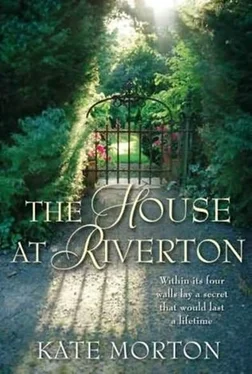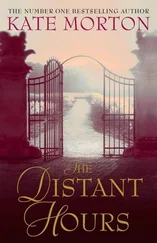‘Found her here,’ says green hair. ‘Almost fell on her way up the stairs.’
‘Is that right, you naughty thing,’ Sylvia says. ‘I turn my back one minute! You’ll give me a heart attack if you’re not careful. I don’t know what you were thinking.’
I begin to tell her but stop. Realise that I cannot remember. I have the strongest sense that I was looking for something, that I wanted something.
‘Come on,’ she says, both hands on my shoulders, steering me away from the hall. ‘Anthony’s dying to meet you.’
The tent is large and white with one flap tied back to permit entry. A painted fabric sign is strung above the entrance: Saffron Green Historical Society . Sylvia manoeuvres me inside. It is hot and smells like freshly mown grass. A fluorescent light tube has been fastened to the ceiling frame, humming as it casts its anaesthetic glow across the plastic tables and chairs.
‘That’s him there,’ Sylvia whispers, indicating a man whose ordinariness renders him vaguely familiar. Grey-flecked brown hair, matching moustache, ruddy cheeks. He is in deep conversation with a matronly woman in conservative dress. Sylvia leans close. ‘Told you he was a good sort, didn’t I?’
I am hot and my feet ache. I am confused. From nowhere, a delicious urge to petulance. ‘I want a cup of tea.’
Sylvia glances at me, quickly masks surprise. ‘Of course you do, ducky. I’ll fetch you one, and then I’ve got a treat for you. Come and sit down.’ She bundles me over to sit by a hessian-covered board tiled with photographs, then disappears.
It is a cruel, ironical art, photography. The dragging of captured moments into the future; moments that should have been allowed to evaporate with the past; should exist only in memories, glimpsed through the fog of events that came after. Photographs force us to see people before their future weighed them down, before they knew their endings.
At first glance they are a froth of white faces and skirts amid a sepia sea, but recognition brings some into sharp focus while others recede. The first is the summer house, the one Teddy designed and had built when they took up residence in 1924. The photograph was taken that year, judging by the people in the foreground. Teddy stands near the incomplete stairs, leaning against one of the white marble entrance pillars. There is a picnic rug on the grassy escarpment nearby. Hannah and Emmeline sit on it, side by side. Blonde bookends. Both with the same faraway look in their eyes. Deborah stands at the front of frame, tall body fashionably slumped, dark hair falling over one eye. She holds a cigarette in one hand. The smoke gives the impression of haze on the photo. If I didn’t know better, I’d think there was a fifth person in the photo, hidden behind the haze. There’s not of course. There are no photos of Robbie at Riverton. He only came the two times.
The second photograph has no people in it. It is of Riverton itself, or what was left of it after the fire swept through before the second war. The entire left wing has disappeared as if some mighty shovel descended from the sky and scooped out the nursery, the dining room, the drawing room, the family bedrooms. The remaining areas are charred black. They say it smoked for weeks. The smell of soot lingered in the village for months. I wouldn’t know. By that time war was coming, Ruth was born, and I was on the threshold of a new existence.
The third photograph I have avoided recognising, avoided assigning its place in history. The people I identify easily; the fact that they are dressed for a party. There were so many parties in those days, people were always dressing up and posing for photographs. They could be going anywhere. But they are not. I know where they are, and I know what is to come. I remember well what they wore. I remember the blood, the pattern it sprayed across her pale dress, like a jar of red ink dropped from a great height. I never managed to remove it completely; it wouldn’t have made much difference if I had. I should simply have thrown it out. She never looked at it again, certainly never wore it.
In this photo they do not know; they are smiling. Hannah and Emmeline and Teddy. Smiling at the camera. It is Before. I look at Hannah’s face, searching for some hint, some knowledge of impending doom. I don’t find it, of course. If anything, it is anticipation I see in her eyes. Though perhaps I only imagine it because I know it was there.
There is someone behind me. A woman. She leans across to look at the same photograph.
‘Priceless, aren’t they,’ she says. ‘All those silly outfits they used to wear. A different world.’
The shadow across their faces she does not notice; it is in my eyes and mine alone. Knowledge of what’s to come spreads like frostbite, up my legs.
No, it is not knowledge I feel; my leg is weeping where I bumped it, cold, sticky liquid seeping down toward my shoe.
Someone taps my shoulder. ‘Dr Bradley?’ A man is bending toward me, his beaming face near mine. He takes my hand. ‘Grace? May I call you that? It’s a pleasure to meet you. Sylvia’s told me so much about you. It really is a pleasure.’
Who is this man, speaking so loudly, so slowly? Shaking my hand so fervently? What has Sylvia told him of me? And why?
‘… It’s English I teach for a living, but history’s my passion. I like to consider myself a bit of a local history buff.’
Sylvia appears through the tent’s entrance, polystyrene cup in hand. ‘Here you are then.’
Tea. Just what I felt like. I take a sip. It is lukewarm; I can no longer be trusted with hot liquids. I have dozed off unexpectedly one too many times.
Sylvia sits in another chair. ‘Has Anthony told you about the testimonials?’ She blinks mascara-clumped eyelashes at the man. ‘Have you told her about the testimonials?’
‘Hadn’t quite got round to it,’ he says.
‘Anthony’s video-taping a collection of personal stories from local people about the history of Saffron Green. It’s to go to the Historical Society.’ She looks at me, smiles broadly, ‘He’s got a funding grant and all. He’s just been recording Mrs Baker over there.’
She continues, with his help, to explain; occasional snatches jump out from the rest: oral histories, cultural significance, millennium time capsule, people in a hundred years…
Once upon a time, people kept their stories to themselves. It didn’t occur to them that folks would find them interesting. Now everybody’s writing a memoir, competing for the worst childhood, the most violent father. Four years ago a student from a nearby technical college came to Heathview asking questions; an earnest young man with bad skin and a habit of shredding the skin around his fingernails while he listened. He brought a little tape-recorder and a microphone, and a manila folder with a sheet of questions written out by hand. He went from room to room, asking whether people would mind answering questions. He found plenty of folk only too happy to volunteer their stories, to unzip themselves and let the contents spill. Mavis Buddling, for one, kept him busy with tales of a heroic husband I knew she’d never had.
I suppose I should be glad. In my second life, after it all ended at Riverton, after the second war, I spent much of my time digging around discovering people’s stories. Finding evidence, fleshing out bare bones. How much easier it would have been if everybody came replete with a record of their personal history. But all I can think of is a million tapes of the elderly ruminating on the price of eggs thirty years ago. Are they all in a room somewhere, a huge underground bunker, shelves from floor to ceiling, tapes lined up, walls echoing with trivial memories that no one has time to hear?
There is only one person whom I wish to hear my story. One person for whom I set it down on tape. I only hope it will be worth it. That Ursula is right: that Marcus will listen and understand. That my own guilt and the story of its acquisition will somehow set him free.
Читать дальше












